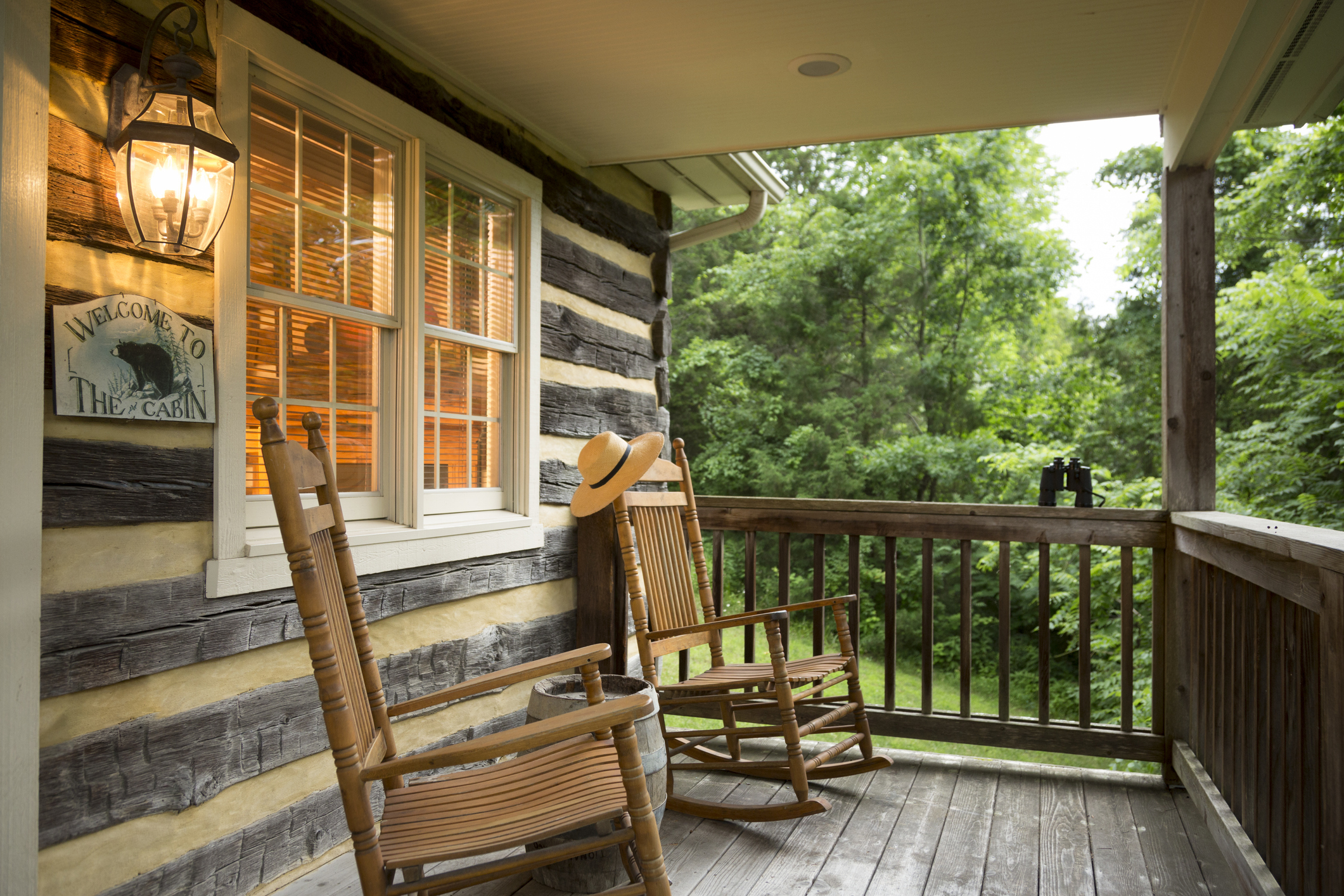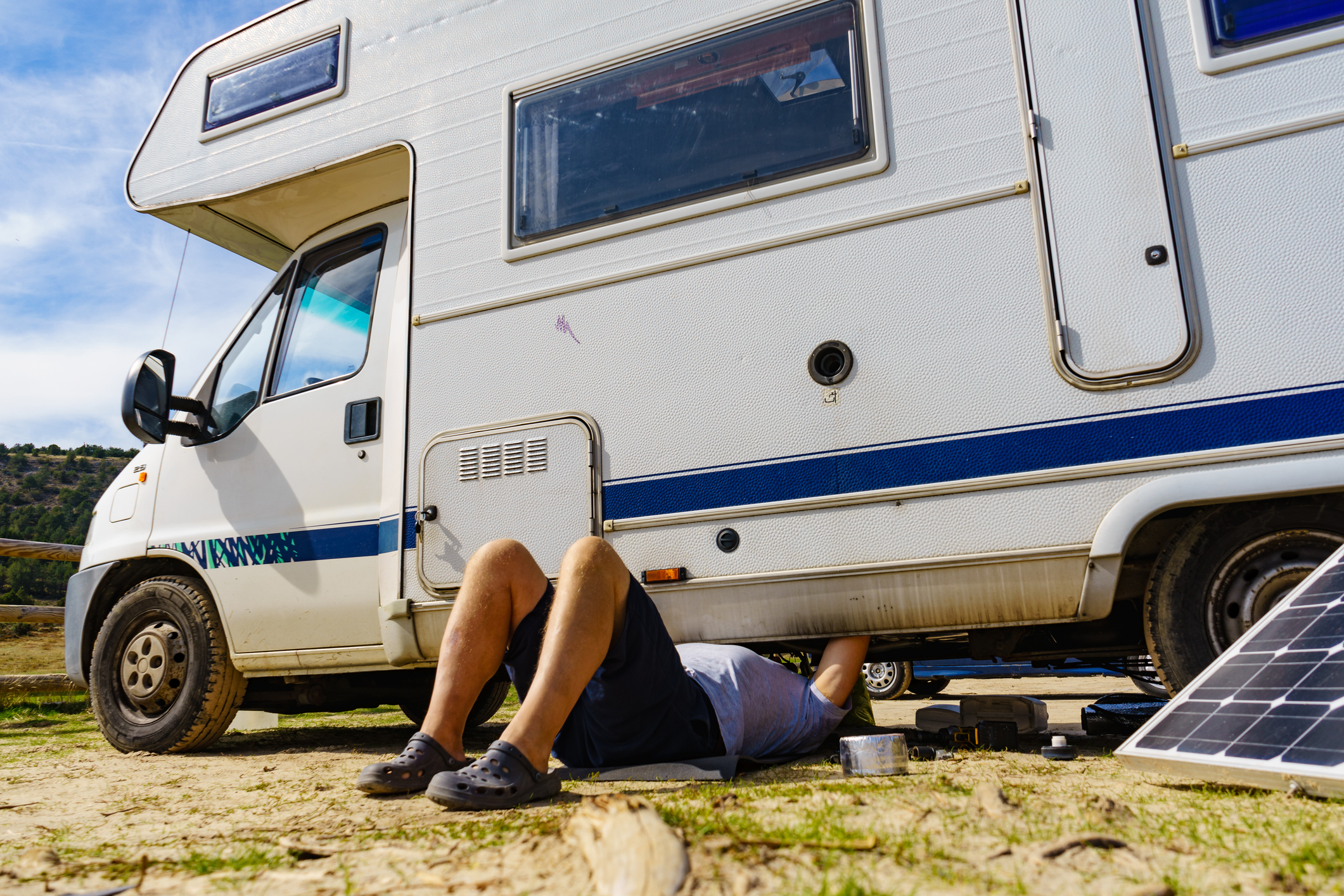RV Living or Vacation Home? What's Best for Your Retirement?
You may fantasize about RV living or owning a cabin in the mountains or by the beach. Both options can be affordable and fun, but kick the tires first!


Profit and prosper with the best of Kiplinger's advice on investing, taxes, retirement, personal finance and much more. Delivered daily. Enter your email in the box and click Sign Me Up.
You are now subscribed
Your newsletter sign-up was successful
Want to add more newsletters?

Delivered daily
Kiplinger Today
Profit and prosper with the best of Kiplinger's advice on investing, taxes, retirement, personal finance and much more delivered daily. Smart money moves start here.

Sent five days a week
Kiplinger A Step Ahead
Get practical help to make better financial decisions in your everyday life, from spending to savings on top deals.

Delivered daily
Kiplinger Closing Bell
Get today's biggest financial and investing headlines delivered to your inbox every day the U.S. stock market is open.

Sent twice a week
Kiplinger Adviser Intel
Financial pros across the country share best practices and fresh tactics to preserve and grow your wealth.

Delivered weekly
Kiplinger Tax Tips
Trim your federal and state tax bills with practical tax-planning and tax-cutting strategies.

Sent twice a week
Kiplinger Retirement Tips
Your twice-a-week guide to planning and enjoying a financially secure and richly rewarding retirement

Sent bimonthly.
Kiplinger Adviser Angle
Insights for advisers, wealth managers and other financial professionals.

Sent twice a week
Kiplinger Investing Weekly
Your twice-a-week roundup of promising stocks, funds, companies and industries you should consider, ones you should avoid, and why.

Sent weekly for six weeks
Kiplinger Invest for Retirement
Your step-by-step six-part series on how to invest for retirement, from devising a successful strategy to exactly which investments to choose.
Who wouldn't dream of RV living or chilling out in a sweet vacation home this summer? With a weakening dollar, both options appear more affordable than European travel, for example, especially for retirees who are mindful of their spending. Plus, owning RVs and second homes can provide vacations for years to come.
With markets being chaotic and recession fears mounting, it could be a good time for retirees to take steps to reduce their costs. One potential solution could be to downsize from your current home and try retiring in an RV, either part-time or as your primary residence.
Similarly, if you own a second home in retirement or have saved up to buy one, you may want to consider van life as an alternative. Ditching a permanent home for RV living might even save you enough money to make early retirement possible.
From just $107.88 $24.99 for Kiplinger Personal Finance
Become a smarter, better informed investor. Subscribe from just $107.88 $24.99, plus get up to 4 Special Issues

Sign up for Kiplinger’s Free Newsletters
Profit and prosper with the best of expert advice on investing, taxes, retirement, personal finance and more - straight to your e-mail.
Profit and prosper with the best of expert advice - straight to your e-mail.
But RV living isn’t for everyone. And it’s important to weigh the pros and cons before deciding to give van life a try.
The upside of RV living over a vacation home

March's Consumer Price Index found that shelter costs were up 4% annually. Yet RV Trader reports that the average rental price of an RV has increased by only $1 since 2023.
Kelsey Fritz, travel expert with RV Trader, says there can be big savings associated with full-time van life.
"For full-timers who want to live on the road, RV life cuts utility costs in large part by making you more conscious of them," she explains. And while Fritz notes that there are many variables involved, she says, "RVing for most folks involves considerable downsizing space and stuff."
For retirees seeking to travel a lot, RV living offers potential savings over airfare and hotel rooms, says Fritz. Plus, van life offers the flexibility to linger in an area that proves fascinating without worrying about catching a flight home.
Fritz also notes that retirees, in particular, might appreciate the community of RV parks.
“So many of these campgrounds and RV parks are specifically made for [retirees]," she explains. “There are pickleball courts and senior proms” (typically well-planned parties for snowbird senior citizens).
RV living could also be a good way to mitigate some of the costs of owning a second home — particularly in the context of climate risk. As extreme weather drives homeowners' insurance premiums upward in different corners of the country, it could be advantageous to have the option to abandon high-cost areas to chase savings. Van life could allow for that.
Plus, with a vacation home, you’re tethered to the same location while you’re using it. Visiting a vacation home for the occasional long weekend is a novelty while you’re working and your opportunities to get away are limited. Spending weeks at a time in a vacation home in the absence of having a job could get boring. You might crave the new experiences that van life could offer.
The downside of RV living compared to a vacation home

Van life has its benefits for retirees, but there are also RV pitfalls to consider. Even a fairly economical Class C motorhome can cost $50,000 to $200,000 on average. That may be cheaper than buying a second home, but don’t forget that there are expenses to consider beyond the up-front cost.
You’ll have to deal with insurance, fuel, maintenance, and campground or RV park fees. Those can be tricky to budget for, as maintenance costs can largely hinge on the road conditions you encounter and the amount of usage your RV gets.
Fritz also warns that RV maintenance goes beyond maintaining a typical vehicle. There are tasks that need to be performed regularly and seasonally, like winterizing. You may not find it much cheaper to maintain an RV versus a second home that’s in good condition.
“In an RV, those tasks are your personal responsibility, and your willingness to do them will affect your camping experience,” Fritz says.
Plus, van life might introduce challenges if you're someone with health issues. In addition to potentially having to scramble to find care, depending on where your travels take you, you may be limited if you're enrolled in a Medicare Advantage plan and encounter a non-emergency issue outside of your primary coverage area.
Remember, too, that while homes tend to appreciate in value over time, RVs, like all motor vehicles, tend to lose value from year to year. If money ends up getting tight later on in retirement, you could always sell a vacation home and pocket the proceeds. You may not walk away with much by selling a used RV, especially one that’s showing signs of wear.
Is RV living right for you?
You may find that RV living gives you the freedom to explore the country now that you've got time on your hands while allowing you to unload the expense of owning a home — if you're willing to take that leap.
However, if you've never experienced van life before, you may want to try before you buy. Check out several RV rental sites, like Outdoorsy, RVshare and RVezy.
RV costs vary substantially depending on the type of vehicle you want, its amenities and storage space. The RV you choose should also hinge on your specific travel needs, and you may not have those planned out right away.
Whether you decide to rent versus buy, or to embrace van life on a full-time versus occasional basis, Fritz insists that research is key.
"If you’re going to RV full-time, you really need to define what your needs are and what your budget is," she says. "Research where you plan to stay and what the rates are. Make sure the numbers make sense in advance, because the RV life is really about enjoying freedom. That should include financial peace of mind."
Read More
Profit and prosper with the best of Kiplinger's advice on investing, taxes, retirement, personal finance and much more. Delivered daily. Enter your email in the box and click Sign Me Up.

Maurie Backman is a freelance contributor to Kiplinger. She has over a decade of experience writing about financial topics, including retirement, investing, Social Security, and real estate. She has written for USA Today, U.S. News & World Report, and Bankrate. She studied creative writing and finance at Binghamton University and merged the two disciplines to help empower consumers to make smart financial planning decisions.
-
 Quiz: Do You Know How to Avoid the "Medigap Trap?"
Quiz: Do You Know How to Avoid the "Medigap Trap?"Quiz Test your basic knowledge of the "Medigap Trap" in our quick quiz.
-
 5 Top Tax-Efficient Mutual Funds for Smarter Investing
5 Top Tax-Efficient Mutual Funds for Smarter InvestingMutual funds are many things, but "tax-friendly" usually isn't one of them. These are the exceptions.
-
 AI Sparks Existential Crisis for Software Stocks
AI Sparks Existential Crisis for Software StocksThe Kiplinger Letter Fears that SaaS subscription software could be rendered obsolete by artificial intelligence make investors jittery.
-
 Quiz: Do You Know How to Avoid the 'Medigap Trap?'
Quiz: Do You Know How to Avoid the 'Medigap Trap?'Quiz Test your basic knowledge of the "Medigap Trap" in our quick quiz.
-
 We Retired at 62 With $6.1 Million. My Wife Wants to Make Large Donations, but I Want to Travel and Buy a Lake House.
We Retired at 62 With $6.1 Million. My Wife Wants to Make Large Donations, but I Want to Travel and Buy a Lake House.We are 62 and finally retired after decades of hard work. I see the lakehouse as an investment in our happiness.
-
 Social Security Break-Even Math Is Helpful, But Don't Let It Dictate When You'll File
Social Security Break-Even Math Is Helpful, But Don't Let It Dictate When You'll FileYour Social Security break-even age tells you how long you'd need to live for delaying to pay off, but shouldn't be the sole basis for deciding when to claim.
-
 I'm an Opportunity Zone Pro: This Is How to Deliver Roth-Like Tax-Free Growth (Without Contribution Limits)
I'm an Opportunity Zone Pro: This Is How to Deliver Roth-Like Tax-Free Growth (Without Contribution Limits)Investors who combine Roth IRAs, the gold standard of tax-free savings, with qualified opportunity funds could enjoy decades of tax-free growth.
-
 I'm a Wealth Adviser Obsessed With Mahjong: Here Are 8 Ways It Can Teach Us How to Manage Our Money
I'm a Wealth Adviser Obsessed With Mahjong: Here Are 8 Ways It Can Teach Us How to Manage Our MoneyThis increasingly popular Chinese game can teach us not only how to help manage our money but also how important it is to connect with other people.
-
 Global Uncertainty Has Investors Running Scared: This Is How Advisers Can Reassure Them
Global Uncertainty Has Investors Running Scared: This Is How Advisers Can Reassure ThemHow can advisers reassure clients nervous about their plans in an increasingly complex and rapidly changing world? This conversational framework provides the key.
-
 5 Ronald Reagan Quotes Retirees Should Live By
5 Ronald Reagan Quotes Retirees Should Live ByThe Nation's 40th President's wit and wisdom can help retirees navigate their financial and personal journey with confidence.
-
 I'm a Real Estate Investing Pro: This Is How to Use 1031 Exchanges to Scale Up Your Real Estate Empire
I'm a Real Estate Investing Pro: This Is How to Use 1031 Exchanges to Scale Up Your Real Estate EmpireSmall rental properties can be excellent investments, but you can use 1031 exchanges to transition to commercial real estate for bigger wealth-building.